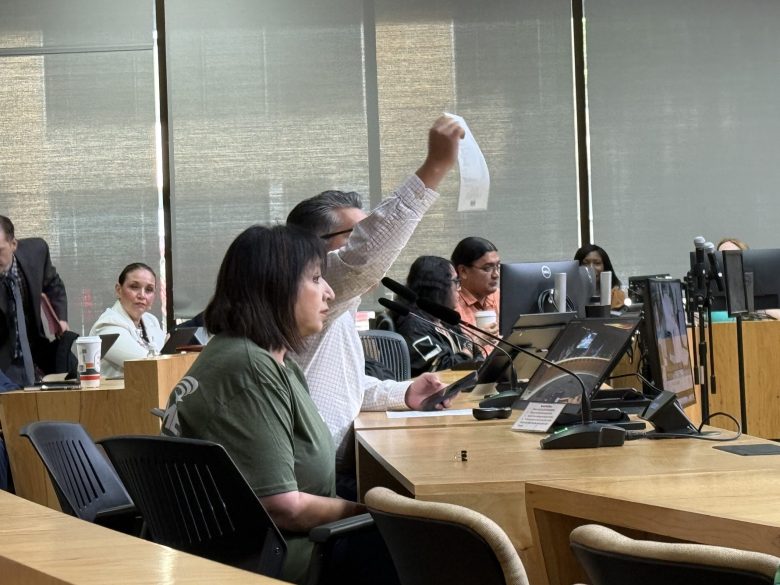City Council set the maximum amount that it can ask voters to raise their property taxes at 8 cents, or an additional $421 per year for the average homeowner, during a public hearing on Thursday. This is the first step toward a potential tax rate election on the November ballot to close Austin’s $33 million deficit and finance the proposed $6.3 million budget. The state’s cap on the amount that localities can collect is already 3.5 percent higher in the current planned budget. A tax rate election will be necessary for anything more.
The city’s shortfall has been caused by a number of factors, including the state legislature, widespread federal funding cuts since Trump took office, unpredictable low sales tax receipts, and the expiration of the last of the American Rescue Plan Act’s pandemic relief cash. A 7 percent tax rate increase, which at least six council members have supported, would close the high-end disparity by raising the average homeowner’s taxes by $200 or more each year. While Mayor Kirk Watson has outlined a spending plan on the Council message board over the weekend, he has come down on the side of a 3.5 percent increase over the projected budget, while Council Member Marc Duchen is adamantly against any tax rate election (TRE).
Austin would have to deal with severe service gaps and significant shortages if there were no election. Recycled Read, the used bookshop at the Austin Public Library, may close, city officials are already considering reducing firefighter staffing below national standards, and Austin Public Health has lost over $15 million in federal grants since Trump took office, which staff have warned will limit immunization capabilities. The discussion on Thursday focused on the state’s ongoing efforts to limit municipal control and the Trump administration’s role in Austin’s financial problems. In fact, the legislature was discussing reducing the maximum on tax increases for Texas communities with more than 75,000 residents to 2.5 percent at the state capitol that same day.
More than two-thirds of Austin residents support a tax hike, according to a municipal survey done in the spring and summer. The question is how much the increase will be and what it will be used for. Speakers at the conference on Thursday stressed the City’s duty to care for its most vulnerable residents, while survey participants’ top priorities were housing and homelessness services, mobility and mobility, and sustainability.
Ben Suddaby, a member of AFSCME 1624, brought his P. Terry’s receipt for two 24.46 hamburgers to the stage during the hearing and said, “I will forgo this to pay for your library, to pay for your health care.” The state and federal governments are attempting to defund us, but I have faith that our community will band together and fight back.
Immigration Legal Services was highlighted as being especially crucial to shielding vulnerable Austinites from the upcoming four years of intense ICE raids. Several speakers argued for the reprioritization of specific social services within the proposed budget’s tier structure for various cent increase scenarios.
According to Peter Hunt of the Austin Justice Coalition, just because something is labeled at 7 or 8 cents doesn’t mean that’s where it should be. Kathy Mitchell, a longtime justice campaigner, asked Council to prioritize legal aid in order to avoid it being something we can access.
The majority of presenters believed that the city’s $101 million homelessness policy should be fully funded. Support for the proposed budget’s emphasis on housing during a dire need was voiced by city partners and stakeholders offering homeless services: From February to July of this year, the number of persons living in Downtown without shelter increased by 26%, according to Davon Barbour, CEO of the Downtown Austin Alliance.
Brian McGiverin of the Austin Community Law Center urged Council to fund rental assistance and supportive housing by sharing the experience of a single client with three children who was evicted after falling behind on her rent after the birth of her fourth child and was unable to find lodging for her family. We must resist the state’s efforts because I represent too many clients who would be left without a place to live if they were evicted.
Even though the majority of speakers were in favor of a TRE, some were unwilling to pay for it and criticized Council’s spending practices. On the Council Message Board, Council Member Marc Duchen shared this opinion, stating that if there was desire on the dais, I would look into a compromise and support a small TRE of one or two cents that includes things that I think we can all agree on. But yesterday, I heard that it was either go big or go home. Additionally, I worry that Austin taxpayers may tell us to leave when we are given a 5+ cent ($200+) TRE. Additionally, he advocated for more robust cooperation with organizations and recommended austerity with social services, especially spending on housing and homelessness.
Julio Gonzalez Altamirano, a longtime public policy commentator, proposed ballot language that splits the TRE in half to address the excruciating cost and correct the City’s previous spending errors. This way, the public will see a less alarming amount of 2 or 3 percent, respectively, for basic services like fire and EMS and another for housing/homelessness. In addition to preventing Council from doing what Altamirano advised is a blank check for future Councils to dedicate that cash to greater public safety increases, which he argued produced this shortage in the first place, this would increase the TRE’s election chances over a more broad one. We are in this predicament as a result of past Councils’ lack of practicality on the cost of public safety. This is the reason why the ballot text needs to contain specific pledges.
The budget’s next public hearing is scheduled for August 13 at 10 a.m. in City Hall.
Community donations enable the work of the Austin Monitors. Even though we occasionally publish on funders, we take pains to ensure transparency by keeping editorial and business activities apart. Our code of ethics is described here, and a full list of donors may be seen here.
You’re a community leader
And we are thrilled that you trust us with important, in-depth news. You are aware that local and committed watchdog reporting is essential to a healthy community. We will always be here to support you. Will you now support our nonprofit news organization and take the bold next step?









